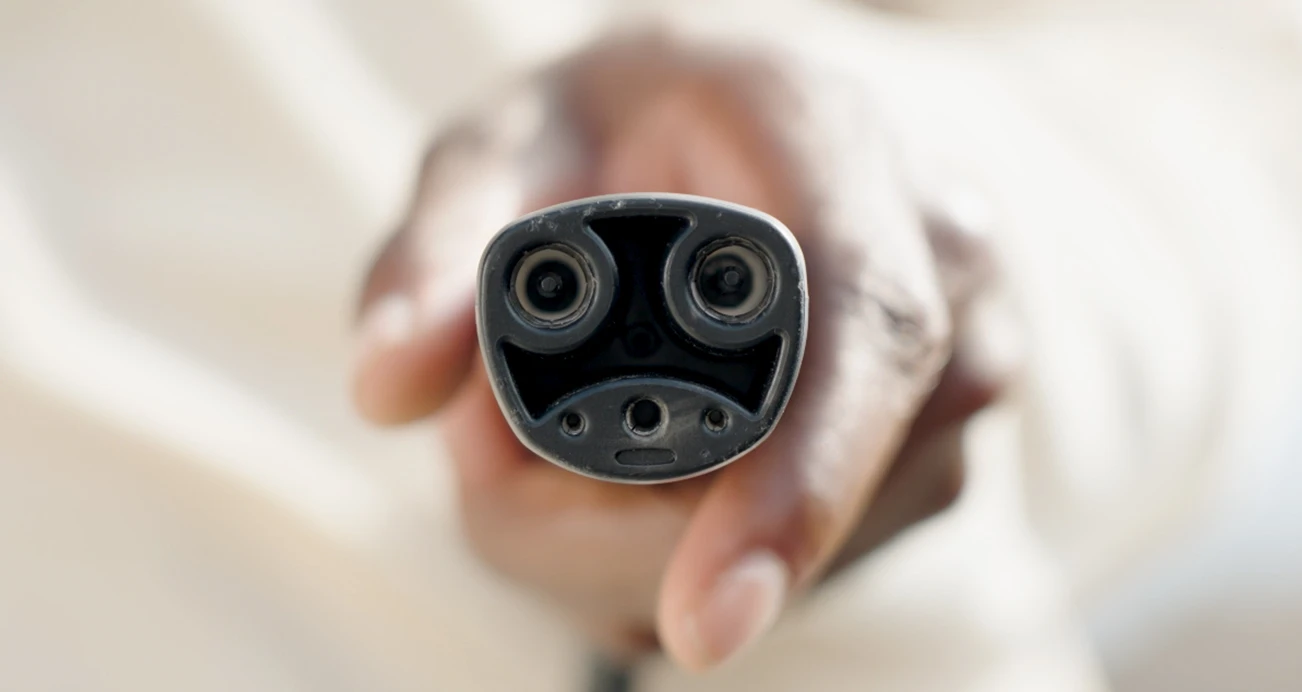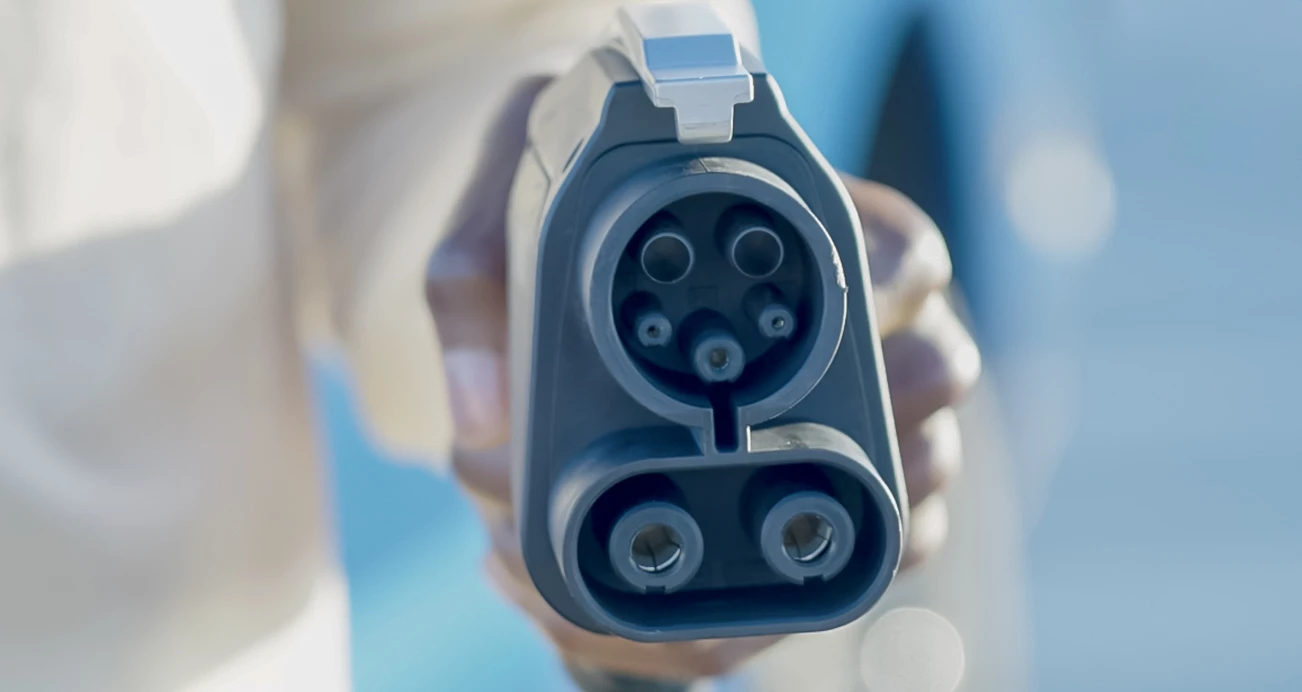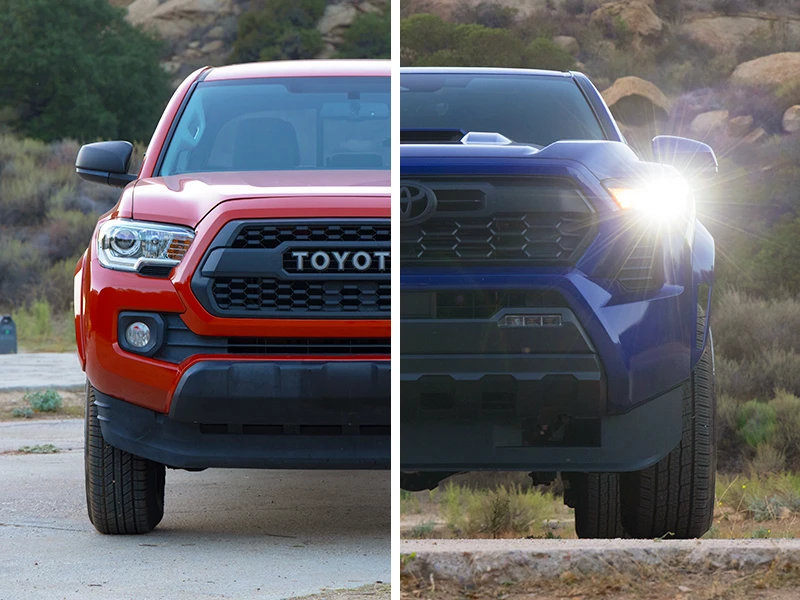
Here’s the scoop on the 3 main plug types you'll find at fast-charging stations.
Article Summary:
There are three main fast-charging plug types for EVs: the North American Charging Standard (NACS) exclusive to Tesla, the Combined Charging System (CCS) for most non-Tesla EVs, and CHAdeMO mainly for Nissan Leafs
Tesla Superchargers and (now known as the NACS plug) are the most common, but the CCS is widely available at public stations, while and CHAdeMO chargers are less popular not as common and slower.
Adapters enable Teslas to use CCS chargers. and Soon, non-Tesla EVs will be able to use Superchargers with built-in adapters or upcoming official adapters.
Tesla is renaming its plug to NACS as it plans to open its Supercharger network to other manufacturers starting in 2025.
There's no need to delay buying an EV due to these changes, as adapters will ensure compatibility across different charging standards.
With thousands of vehicles in our inventory, we’re here to help make car research easier for you. We’ve partnered with car-review experts from Edmunds to weigh in on what matters most when you’re looking to buy a truck or car.
***
Whether you're interested in buying an electric vehicle or you're already an EV owner, finding a public fast charger that works with your electric car, truck, or SUV can cause a headache. To ensure you get the range you need and avoid ending up at a charging station that’s not compatible with your car, it’s good to have a general understanding of the EV charging infrastructure today—and where it’s headed in the future.
There are three major plug types that you'll find at fast-charging stations today, and there's also a big change coming to Tesla Superchargers that’s ultimately going to simplify how people charge their EVs.
If you're still considering your next car, take a look at these related articles:
3 EV Fast-Charging Plug Types
Let’s take a closer look at each.
1. The North American Charging Standard (NACS)
The Tesla plug is now called the North American Charging Standard (NACS). Right now NACS is still exclusive to Tesla vehicles, and it's what you’ll see if you go to a Tesla Supercharger station. There are more than 19,000 Supercharger plugs out there, making it the most common fast-charging standard out there. Compared to the other two, its plug is lightweight and compact, and the charge port itself is relatively tiny.

2. Combined Charging System (CCS)
The Combined Charging System is currently found on most electric vehicles not made by Tesla. It's the second most common fast-charging standard you’ll find, available at most public charging stations, whether they're operated by Electrify America, ChargePoint, or EVgo. So for example, if you're driving a Kia EV6, Ford F-150 Lightning, Volkswagen ID.4, or Chevy Bolt, or dozens of other EVs, CCS is the charging standard for you. Compared to the Tesla/NACS standard, this plug is fairly bulky, and the charge port on the car is similarly large.

3. Charge de Move (CHAdeMO)
This fast-charging standard, almost always referred to by its acronym, CHAdeMO, is found primarily on Nissan Leafs. (Mitsubishi also uses it on plug-in hybrid versions of the Outlander.) The plug and port for CHAdeMO are slightly smaller than those for CCS, although still much bigger than for the Tesla/NACS standard. The downside to CHAdeMO is that it generally doesn’t charge as fast as the other two standards. On the other hand, Nissan Leafs are not high-range vehicles, so their smaller battery fills quickly. If you're interested in buying a used Nissan Leaf, you'll want to get familiar with CHAdeMO and where your closest charger is. Though they're not as popular as the other two standards, you can still find CHAdeMO stations all over the place.

How Do I Know Which Charger My Car Uses?
To tell which kind of charger you have, look in your owner's manual. It will spell out charging instructions that include the charger type. In addition, the car's touchscreen should also have information on what kind of charger type to use. As a last resort, simply look at the plug on your car.

Once you know what kind of charging port your vehicle has, you can use a couple of online services to find a compatible charger. PlugShare allows you to search for charging stations near you and provides filters based on charger type and charger speed.
Will I need an adapter for my electric car?
It depends. If you own or are planning on owning a Tesla, you already need an adapter to use a CCS-style charger. The good news is that many Teslas come with an adapter; if the vehicle doesn't, you can buy one directly from Tesla for under $200.
If you're driving an electric car that uses the CCS charger, you generally won't need an adapter at most public stations. Currently (late 2023), it's very hard to find a Tesla station that can charge non-Tesla vehicles. However, this is slowly changing. At Tesla Supercharger stations, the Magic Dock built-in adapter will allow vehicles with a CCS port to charge until an official adapter is released in 2024. Just note that this is only available at a handful of Supercharger stations as of this article, but hopefully that changes soon.
Are electric vehicle adapters difficult to use?
Absolutely not. They typically slide over the charger that you'd like to use and connect directly into your electric vehicle's port. Carrying an adapter around in your electric car will take up some space, but not so much that it will be a major inconvenience.
Why Is the Tesla Charging Standard Changing Its Name?
The Tesla Charging Standard will now be known as the North American Charging Standard, or NACS. That's because Tesla is opening its Supercharger network up to vehicles from more manufacturers and allowing them to use the same plug that up to now has been exclusive to Tesla electric vehicles. So far Honda, Ford, General Motors, Mercedes-Benz, Nissan, Volvo, Polestar, Rivian, and Fisker have committed to using the Tesla-type plug on their cars starting in 2025, and the name change is because they don't want to use a charging standard with a competitor's name on it!
Why do other companies want to use Tesla's plug? One reason is the huge Tesla Supercharger network, which is the biggest fast-charging network in the U.S. Opening up the Tesla Supercharger network to more manufacturers will simplify charging in the U.S., making it easier to own an EV. In addition, the Tesla plug is physically much smaller than the competing designs, making it easier to handle and easier for manufacturers to incorporate into their designs.
There are hardware and software details to figure out, which is why new non-Tesla cars with the new standard won't be available with it until 2025. In the meantime, automakers will start making adapters in 2024 for EVs with Combined Charging System, or CCS plugs, to charge at any location with a Tesla-type plug. With all these changes, it won’t be long before you will see non-Tesla vehicles charging at Supercharger stations around the country.
If I already have an EV, will the switch to NACS change how I charge at home?
Probably not. If you don't currently have the NACS-style charger at home and you're planning on buying an NACS-style vehicle in the future, you'll need to use an adapter. But if you buy a CCS vehicle today and plan to use a CCS charger at home, nothing about this transition will affect you.
With all this change, should I wait to buy an electric car?
Not at all! If you've found an electric vehicle that fits your needs, there's little reason to wait because of the change in charging standard. As mentioned earlier, buying an electric vehicle with a CCS port will, at worst, mean you need to purchase an adapter in the future. Through the use of adapters, most charging stations will have the ability to charge both NACS and CCS vehicles for quite some time.
Conclusion
As more manufacturers adopt the Tesla-based fast-charging standard, this should mean less confusion when hunting for a place to charge your car. It will also streamline the charging process, making owning an electric vehicle easier than ever.




